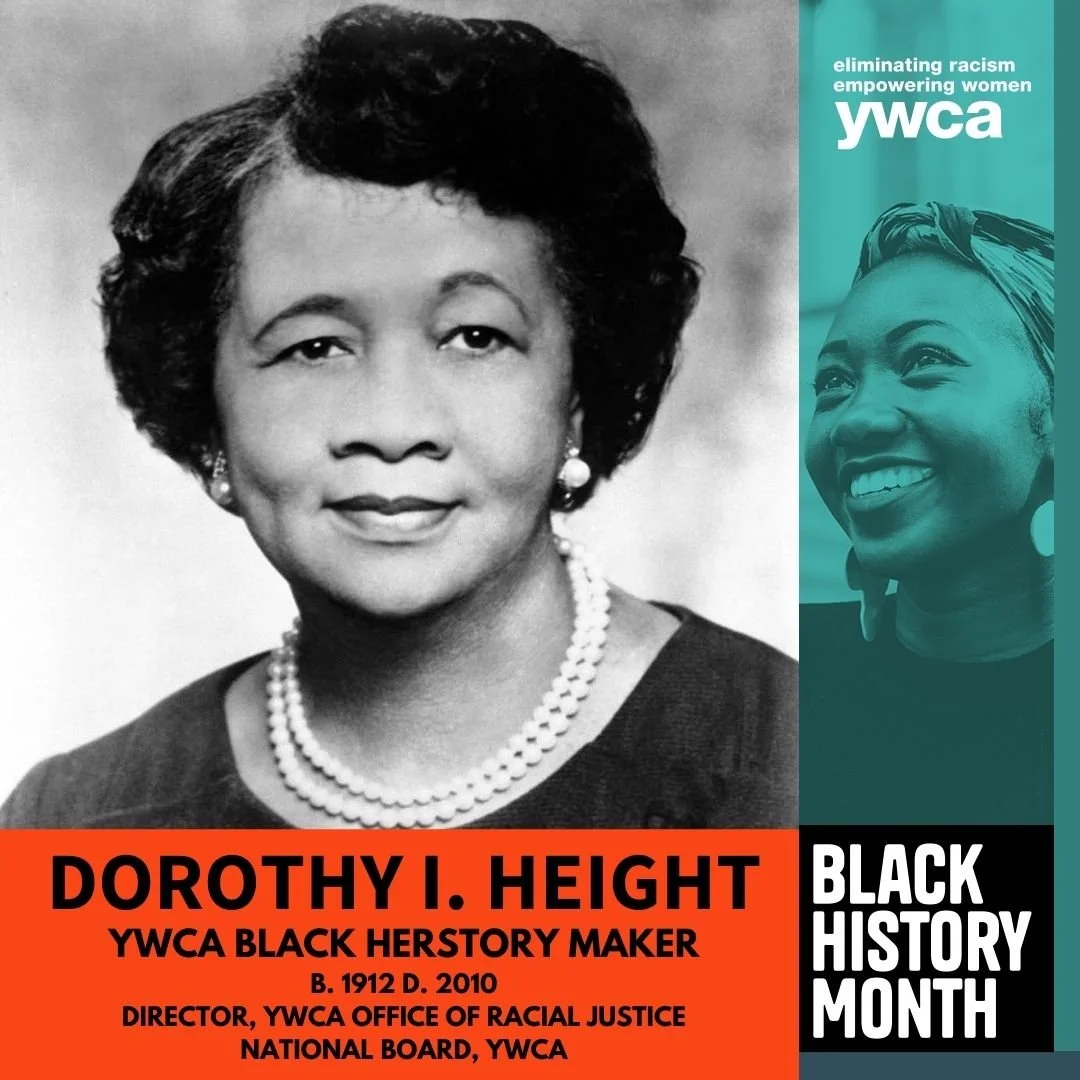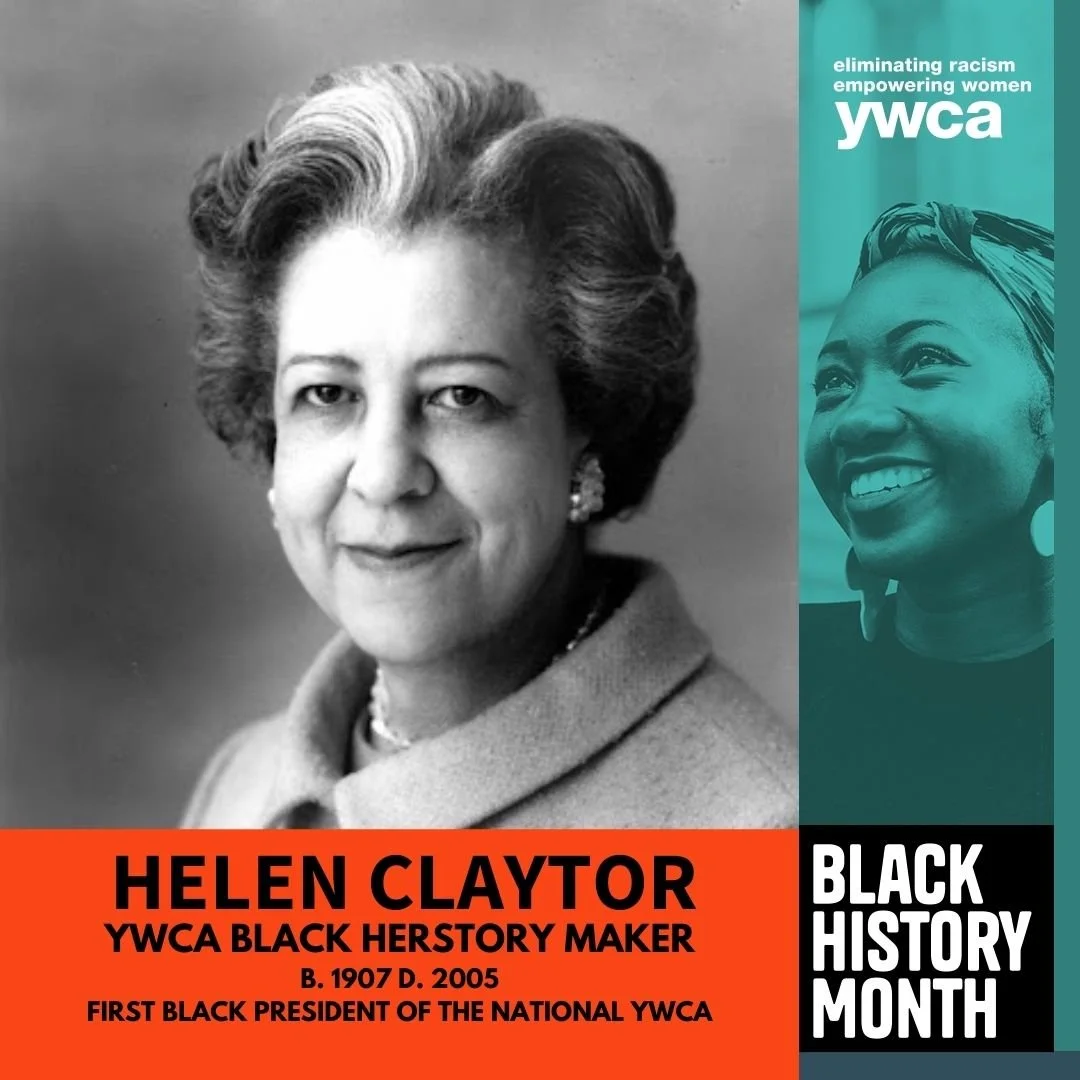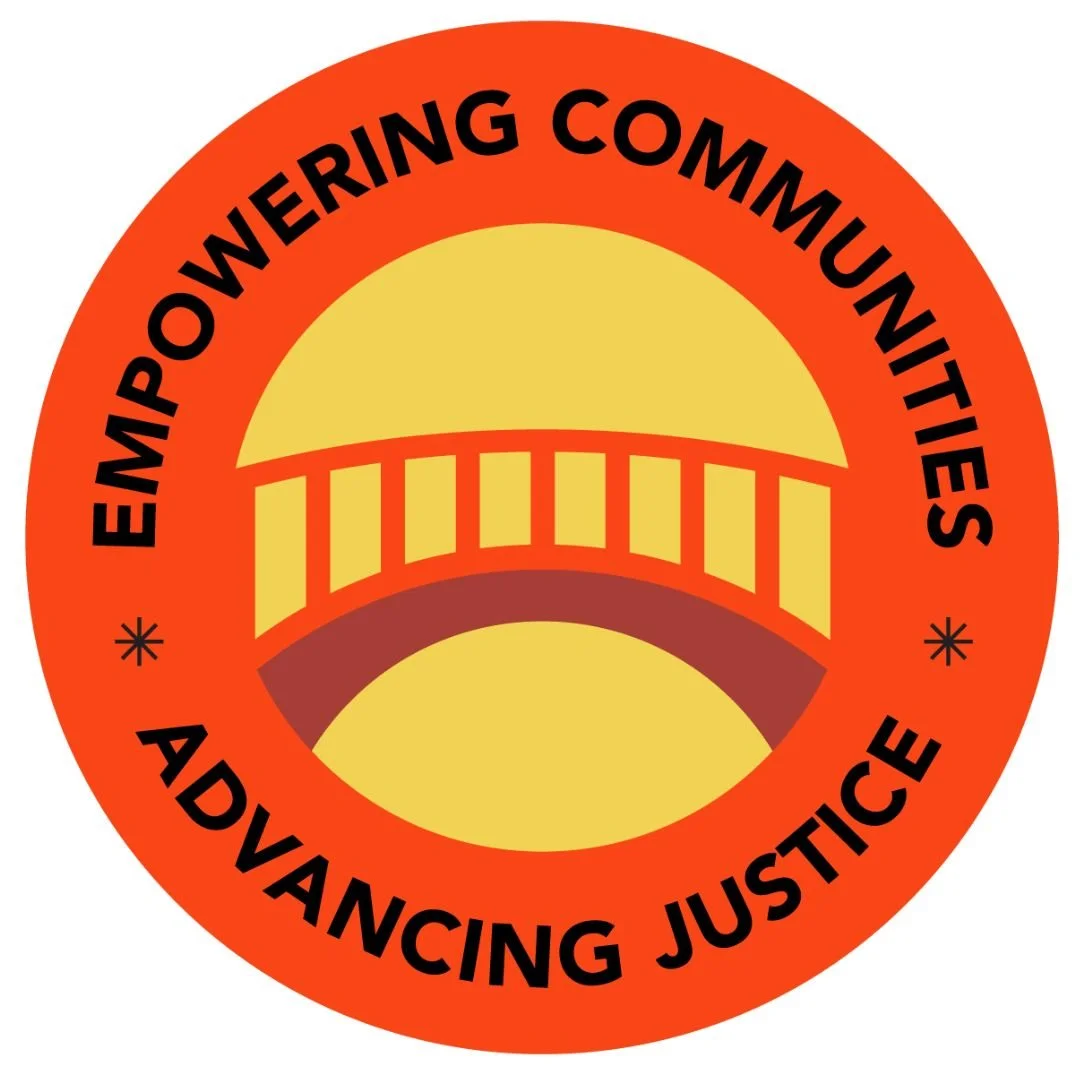YWCA Black HERstory Makers
This Black History Month, we’re honoring the work of four YWCA sheroes who courageously led the nationwide efforts to bring racial justice to the forefront of the YWCA movement. Thanks to them, YWCA’s long history of Empowering Communities & Advancing Justice continues to move us forward today.
Learn more about YWCA USA’s history of advancing racial justice in this 2023 republication of the June 1968 YWCA Magazine:
Dorothy Irene Height is known as the “Godmother of the Civil Rights Movement.”
As a child in the 1920s, Dorothy Height was barred from swimming in the pool at her local YWCA in Pittsburg. Even so, she began her career at YWCA Harlem in 1937, quickly rising to become one of the most influential leaders at YWCA. Height was YWCA USA's first Director of Racial Justice, and she dedicated her life to the intersectional mission of racial and gender equality. She lived to be 98 years old, leaving a trail of influence that will impact the world for generations to come. At her funeral in 2010, President Barack Obama gave the eulogy.
“We have to improve life, not just for those who have the most skills and those who know how to manipulate the system. But also for and with those who often have so much to give but never get the opportunity.” – Dorothy Height
Rev. Dr. Pauli Murray coined the term “Jane Crow.”
Pauli Murray was excluded from places like Columbia University, UNC Chapel Hill, and Harvard Law because of their race and gender. But none of those rejections kept Murray from devoting their life to the destruction of “Jane Crow”, as s/he called it. Murray did not shy from courageous acts of civil disobedience, such as refusing to move to the back of a bus in segregated Virginia, 1945. And their research and writings were influential to figures like Eleanor Roosevelt and Ruth Bader Ginsburg. A paper s/he wrote in law school was used by the team that successfully argued against school segregation in Brown v. Board of Education.
Fun Fact: Pauli Murray will be featured on the quarter in 2024 as part of the U.S. Mint’s American Women Quarters program!
Another Fun Fact: Pauli Murray was the first African American woman ordained as an Episcopal priest (1977), and was named an Episcopal saint in 2012.
Blanche Parks is making Kansas HERstory today.
In YWCA history, Blanche Parks was President of YWCA Northeast Kansas, and then the first Kansan to serve on the YWCA National Board of Directors. But there are many more contributions that Parks has made to our community, to Kansas, and to the YWCA movement. Parks is a Washburn alum, and was recently (2022) honored as the longest-serving member of the Washburn University Board of Regents. She brought her leadership skills to Topeka Downtown Rotary, and also served as Kansas Governor for Rotary International.
And that’s just the start. She is recently retired from decades of courageously serving the State of Kansas in various roles to support Kansas families and students. We’re honored to have Blanche Parks as part of our YWCA Northeast Kansas HERstory.
Read more from her 2018 interview with TK Business Magazine: “YWCA 30th Anniversary Leader: Blanche Parks.”
Helen Claytor was a crucial leader in establishing YWCA’s One Imperative.
Another YWCA leader who started a career at her local YWCAs - including YWCA Kansas City - Helen Claytor left her mark on the movement by taking risks and empowering the organization to realize its mission from within. Her storied YWCA career included serving as National Board President (1967-1973) and placing herself at the forefront of the civil rights movement in her chosen home state of Michigan.
The YWCA One Imperative: In 1946 YWCA began working for integration throughout the organization, adopting an “interracial charter” that established that “wherever there is injustice on the basis of race, whether in the community, the nation, or the world, our protest must be clear and our labor for its removal, vigorous, and steady.” That work culminated in the creation of YWCA’s One Imperative in 1970: To thrust our collective power towards the elimination of racism, wherever it exists, by any means necessary.
Empowering Communities, Advancing Justice
YWCA Northeast Kansas is part of a global movement with over 165 years of history at the forefront of our nation’s most pressing social justice issues. In Kansas, we advance our mission of eliminating racism and empowering women by combining crucial programs and services with advocacy and community education. We carry on this long tradition of social action through our Advocacy and Racial Justice Programs, including the upcoming Racial Justice Challenge.





